BBC Northern Ireland gets ready to mark 90 years on air
- Published
- comments
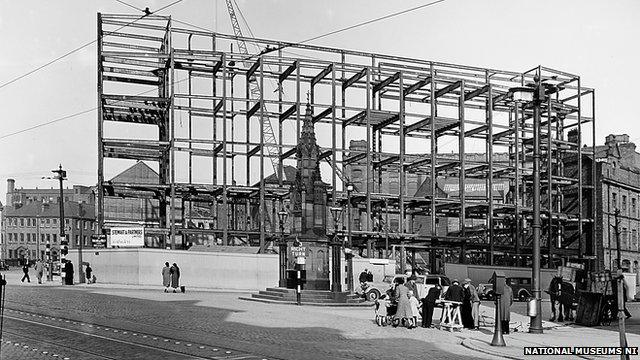
The steelwork goes up during construction of Broadcasting House in 1939
It was the decade when the conversation jumped from the printed page to the airwaves and the year when pioneering broadcasting experiments created a new vocabulary.
1924 gave us the shipping forecast, the first hourly time signals from Greenwich - which the BBC incorporated as its famous pips - and a Scotsman called John Logie Baird managed to send television pictures over a short distance.
It was also the year BBC Northern Ireland was born.
Of course it wasn't called BBC Northern Ireland, the fledgling station had the call sign 2BE as an identifier and was an outpost of the British Broadcasting Company.
Programming was limited and had a relatively small audience made up of those who could afford radio receiving sets and a licence obtained from the General Post Office.
Dissolved
By the end of 1926, 2.25m receiving licences had been issued across the UK but the GPO was uncomfortable collecting money for a commercial organisation and the six wireless manufacturers who controlled the company were making losses and wanted out.
The company was dissolved, shareholders paid off and all assets transferred to a new British Broadcasting Corporation established under Royal Charter on 1 January 1927.
The birth of the public service broadcaster brought a growth in services in Northern Ireland.
Regional programming got properly under way with the opening of a new transmitter at Lisnagarvey in 1936 and in the same year a Scottish architect called James Miller was asked to design a new city centre headquarters to replace the limited BBC studios at Linenhall Street.
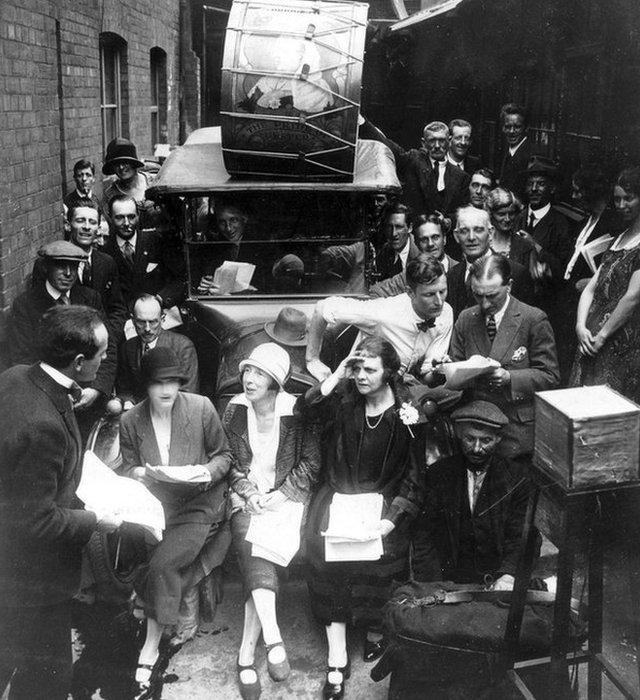
Tyrone Guthrie in bow tie and white shirt making an outside broadcast in Linenhall Street in 1928.
.jpg)
Broadcasting House in Ormeau Avenue, Belfast 1949. Note the air raid shelter to the right of the monument
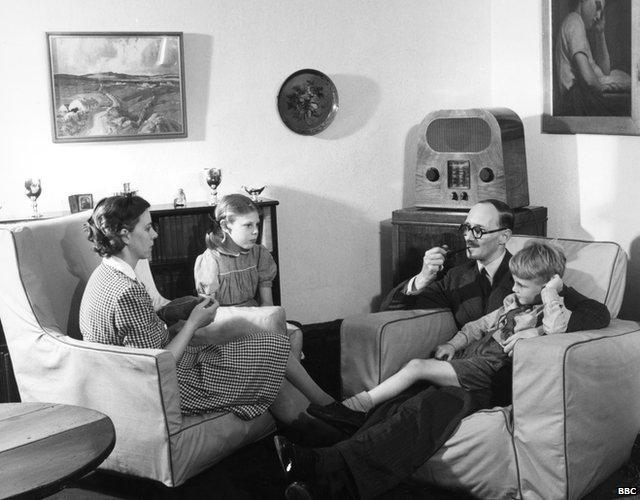
A family of BBC radio listeners in 1947
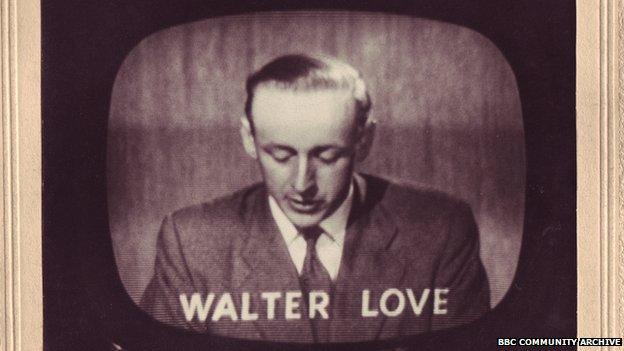
Walter Love makes his first television appearance in 1960

Cameramen were accompanied by soundmen when covering stories.
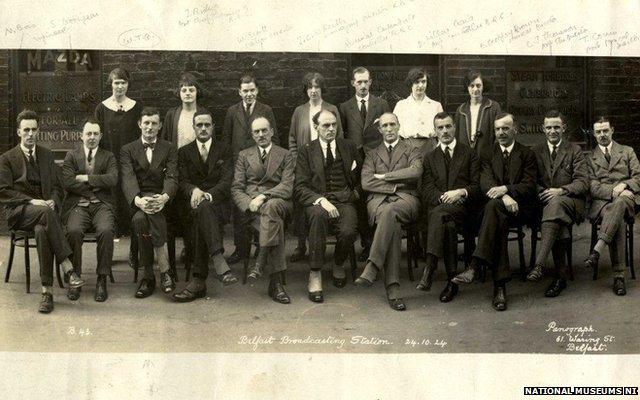
Some of those involved in the launch of broadcasting in 1924. Picture courtesy of the Tyrone Guthrie Centre, Annamakerrig and the Deputy Keeper of the Records, Public Record Office Northern Ireland
In a sign of things to come, newspaper speculation about the BBC's intentions was intense.
By mid-1937 it had been confirmed that the BBC had acquired a city centre site and intended to construct a "Broadcasting House in its main characteristics similar to the headquarters of the Corporation in London" at a cost of about £250,000.
The familiar BBC building in Belfast was completed in 1941 at a time when regional broadcasting had a lesser priority because of the cataclysmic events taking place across the globe.
With the end of the Second World War, services resumed in Northern Ireland and were given fresh impetus by the BBC's new emphasis on regional voices, stories and experiences.
Online world
Local BBC television programmes made their first appearance in the 1950s and in the 1970s were complemented by the creation of two BBC local radio stations - Radio Ulster and Radio Foyle.
Since then, analogue technology has largely given way to digital and much of what we see and hear from the BBC happens in the online world.
Tickets for a gala concert will be available at the start of September but, in the meantime, people can register to join the mailing list for upcoming BBC NI recordings and events by following the links on the website, external or following @bbcnievents, external.
BBC NI wants to hear from people who grew up with it and have memories of the early days of BBC Northern Ireland programming.
If you share BBC NI's birthday or know someone who turns 90 this year BBC NI wants you to get in touch and share your memories.